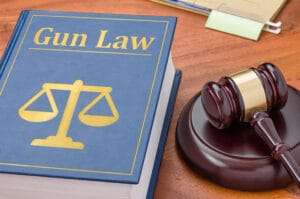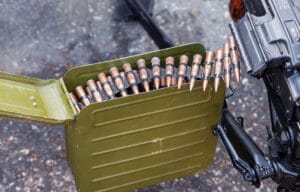Once established and recognized by the AFTE, an NFA trust can acquire additional NFA items. With machine guns in particular, the rarer variants have continued to climb in value since the 1986 ban, and may be constituted a good investment tool in uncertain market times. Thus, it is foreseeable that an NFA trust may be a good estate planning tool to pass on NFA firearms and value to beneficiaries under the trust.
This noted, an NFA trust may continue to sell and acquire NFA firearms during the times of its existence. Where settlor’s and trustees of the NFA trust often make technical mistakes that are potentially criminal is with mis-delivery of NFA items so that there is a gap in the chain of ownership. An example would be if an NFA trust applies to make a short-barrel rifle and makes it before the making form is approved by the NFA. This item is contraband.
In addition, the funding for these firearms should be tracked and solely made through the use of a trust banking account at a financial institution. The Settlor’s social security number may be used for the tracking and identification of this account. Unlike a business entity who may purchase firearms, be subject to public filings, such as incorporation documents, and be required to have a tax identification number, there is no such requirement with a trust.
Once recognized by ATFE, which will require a copy of the trust being sent at the first transfer request and perhaps all thereafter, the trust may acquire Title II weapons without the formalities of an individual, such as a photograph or approval by the chief law enforcement officer. Nevertheless, the NFA weapon sought to be made or transferred into the NFA trust property must be legal under state and local law (if there is not state-based pre-emption).
For all intents and purposes, and NFA trust is a legal person when set up and can buy, make and sell NFA firearms in accordance with the trust terms.
This post was written by attorneys at Dixon & Moseley, PC. It is not intended to be legal advice. This is an advertisement.







